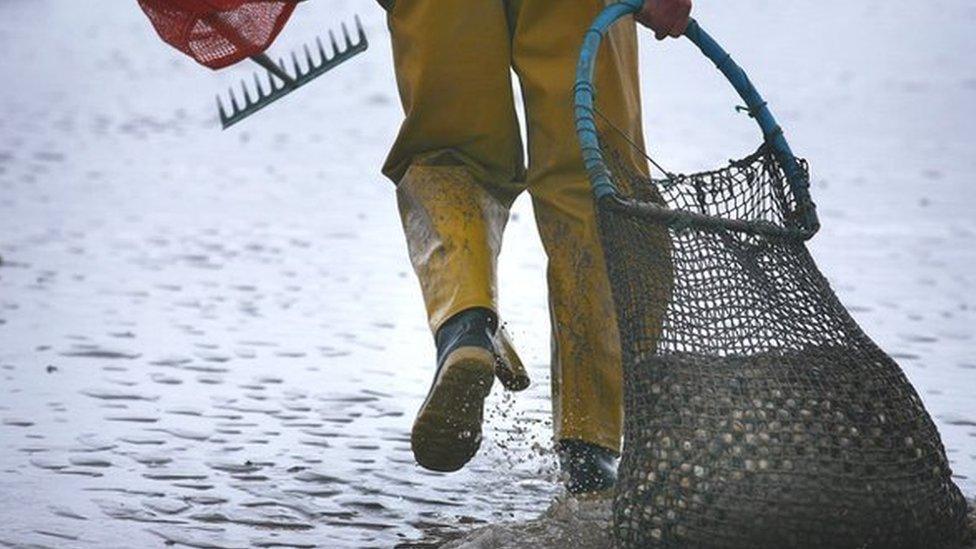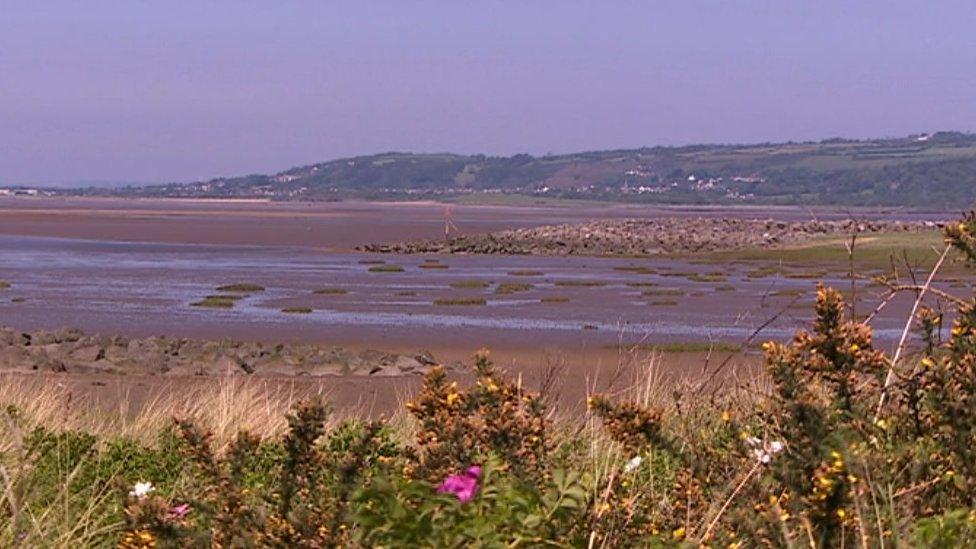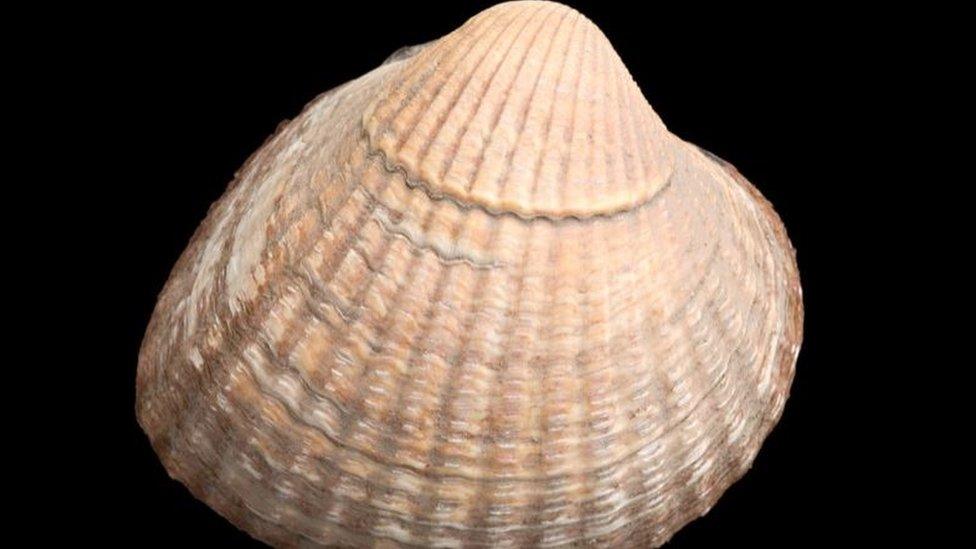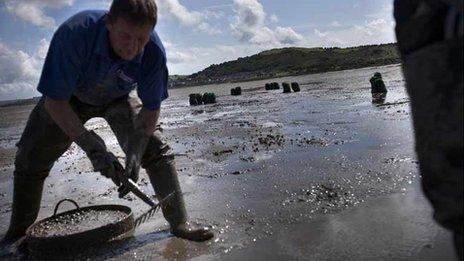Burry Inlet cockle project to tackle 'unexplained' decline
- Published
Ashley Jones, of Selwyn's Seafood, raised fears for the future of the cockle industry
A multi-million pound project will try and establish the cause of cockle deaths in a Carmarthenshire estuary.
Cockle beds on the Burry Inlet, near Llanelli, have been dying off every summer for the past 10 years.
The exact cause is unknown and a previous study proved "inconclusive".
Natural Resources Wales (NRW) will work with Bangor University experts and other UK research centres as part of the Europe-wide investigation into the unexplained cockle deaths.
The three million euro (£2.6m) programme will look at fisheries in the UK and other European countries including Ireland, Spain, Portugal and France where cockle deaths have been harming their industries.
But the owner of one of Wales' biggest cockle processors said he had lost confidence in NRW to get to the bottom of the problem.

Cockle pickers said they are losing money due to their decline
Ashley Jones, of Selwyn's Seafood, said: "After 12 years I would like to think that investigation works would have progressed and we would be getting closer to to finding out what the cause of the problem is.
"Natural Resources Wales and the Welsh Government have done a small survey or research into the project in 2012 which identified 11 possible causes, all of which are still inconclusive, and I think that is unacceptable 12 years on.
"We have an industry here that goes back hundreds of years and is worth a lot of money every year."

The study will look into cockle deaths on the Burry Inlet, near Llanelli
Cockle fisher Neal Page said he has lost about £50,000 a year since a sewerage plant was moved inland.
"Natural Resources Wales can count 10 million cockles here in May or June, but by the end of July there will be a couple of hundred," he said.
Huwel Manley, operations manager for NRW, said the new investigation aims to address "unanswered questions" from the 2012 study.
"Our aim is to manage a sustainable cockle fishery in the Burry Inlet that provides a regular income to licence holders, while leaving enough for stocks to replenish and to feed migratory birds," he said.
"We'll benefit from having full access to data collected across Europe. And we'll consider any new evidence, as well as evidence from our cockle surveys, to help us better manage the fishery in the future."
There will be more on this story on BBC Radio Wales' Eye on Wales programme at 12.30 BST on Sunday, 25 June.
- Published24 June 2016

- Published9 February 2012

- Published11 June 2010